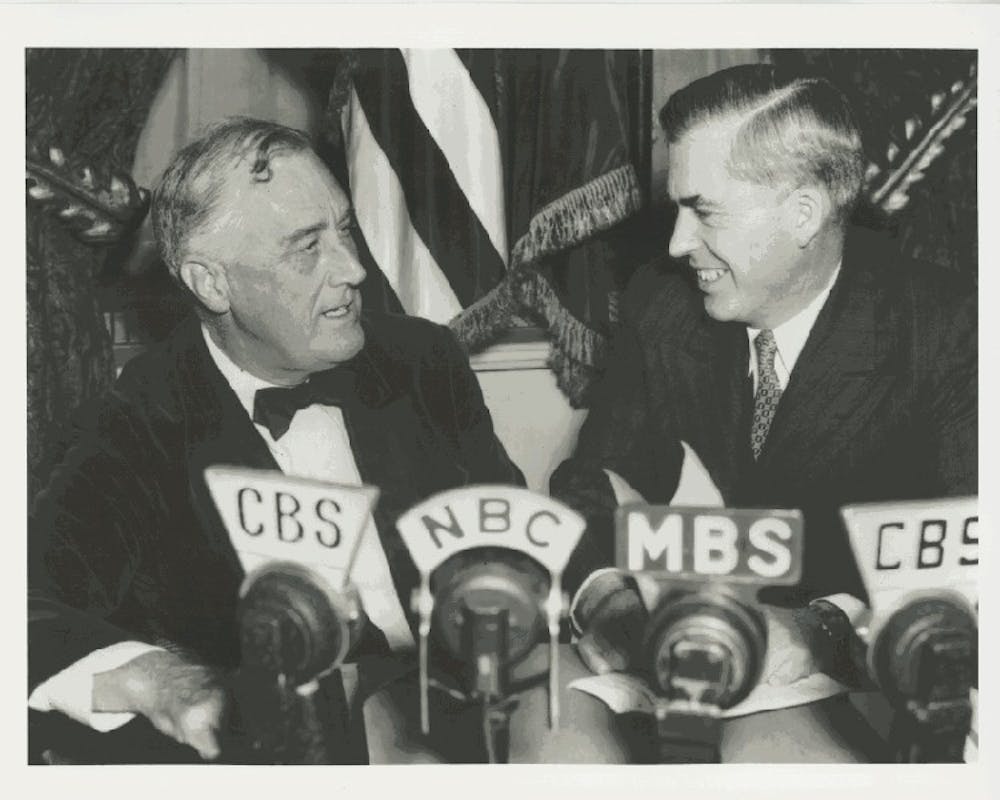Over these past two weeks, the D.C. Environmental Film Festival featured premieres, screenings and discussions in theaters all over the city.
AU played a large part in the festival, screening a number of films for the festival and hosting discussions moderated by AU’s Center for Environmental Filmmaking.
On Thursday, March 18, “Henry A. Wallace, An Uncommon Man” premiered at the National Portrait Gallery as part of the festival. The beautiful and inspiring documentary told the story of Henry A. Wallace, farmer, politician and unsung hero in American history. The film also had strong ties to our university: AU’s Professor Sandy Cannon-Brown produced and co-wrote the film.
Cannon-Brown is an adjunct professor and an associate director of the Center for Environmental Filmmaking, and was just named the recipient of the 2011 Award for Outstanding Teaching in an Adjunct Appointment. Here at AU, Cannon-Brown teaches “Visual Literacy” and “Environmental and Wildlife Production.”
Outside of AU, Cannon-Brown is the president and founder of VideoTakes, Inc. She became involved with “An Uncommon Man” after Joan D. Murray — a granddaughter of Henry A. Wallace, who was inspired to make a film by her grandfather’s remarkable career — approached her about working on the documentary.
“Murray’s mother, Jean Wallace Douglas, had inherited her father’s farm in upstate New York and the attic and library were filled with his books, speeches, letters and photos,” Cannon-Brown said. “Murray knew there was a treasure trove of material for a film and asked me to produce it.”
The film told the remarkable story of Wallace, who served as secretary of Agriculture and vice president during Franklin D. Roosevelt’s third term. Wallace’s work far exceeded whatever political titles he achieved during his lifetime. He made many significant agricultural achievements, founding the world’s first hybrid seed company and, as FDR’s secretary of Agriculture, used his knowledge and love of farming to implement many effective relief programs for farmers and rural communities during the Great Depression.
He was also a dedicated humanitarian and a global citizen, working during his vice presidency to promote sustainable agriculture and international cooperation. Sadly, as a result of pressure from party bosses, FDR did not select Wallace to be his vice president for his fourth term, instead choosing Harry Truman.
The film suggests that had Wallace been chosen for the position, his good relations with the leadership of the Soviet Union and emphasis on global cooperation would have changed the tone of politics in the 1950s. Wallace was himself a hybrid combination: both a politician from a bygone era that valued civility and integrity over gaining political leverage, and a forward-thinking activist who championed many progressive values and causes that would come to fruition decades later.
Most tellingly, the movie ends with images juxtaposing Wallace’s speeches championing civil rights, environmental sustainability and world peace with almost identical ones from John F. Kennedy, Barack Obama and others from decades later, proof that Wallace’s views were far ahead of his time.
The process of making the film was incredibly rewarding for Cannon-Brown.
“I learned more from this project than anything I’d produced in 25 years,” she said. “I’m now an expert on a man about whom I knew nothing about before I met his granddaughter seven years ago. One thing I love about my job is that it allows me to be a perpetual student.”
Of the lessons we all can learn from Wallace’s extraordinary life and work, Cannon-Brown explained that Wallace’s legacy shows the powerful impact that fear has had in American history.
“Wallace fought for civil rights, religious tolerance, and international peace and cooperation far ahead of his time,” Cannon-Brown said. “But his voice was drowned out by those who preached fear: fear of anyone who did not look like them, belonged to a different religious group, or lived in socialist or communist countries. I hope the film opens people’s minds, not just to a man, but to the ideals he stood for and why.”?
mmcdermott@theeagleonline.com





